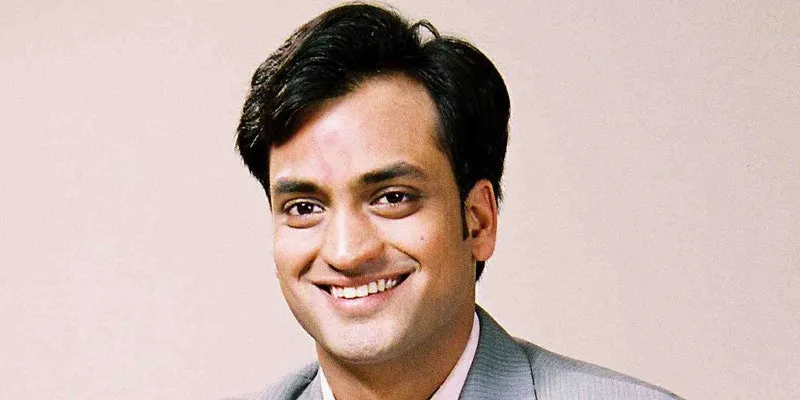How these entrepreneurs are seeing growth following sustainable business model: top SMBStories of the week
Here’s how these entrepreneurs are growing their businesses besides serving nature following an environmentally sustainable business model.

At a time when there is a growing concern due to environmental changes around us, many companies are following eco-friendly measures to reduce the negative impact on the environment. Rather than finding ways to exploit new resources, startups and entrepreneurs are focusing on finding sustainable ways to grow, while protecting the planet and its resources.
This week SMBStory covered businesses which are growing in their segment, and are also being environmentally aware. We also covered stories of entrepreneurs who, with their hard work and perseverance, scaled their business.
Greendigo

Greendigo Cofounders - Barkha Bhatnagar Das (L) and Meghna Kishore (R)
Living consciously and in a manner that is environmentally sustainable was the inspiration behind Greendigo.
Meghna Kishore and Barkha Bhatnagar Das saw a gap in the kidswear segment. Meghana says,
“My daughter had a lot of skin issues. That’s when I figured that garments for kids in India are not that great.”
The duo realised that the kids wear available in the market contained a lot of synthetic fibres, toxic materials, dyes, etc., which are hazardous to their health. They quit their corporate jobs to start a business rooted in organic textiles with an initial investment of Rs 15 lakh.
The Mumbai-based organic clothing brand for kids up to the age of 12 years started its operations in August 2019. In a few months, it claims to be having over 500 customers with 20-22 percent repeat customers.
Greendigo clothes are also termed as capsule-wardrobe friendly (clothes that don’t go out of fashion).
Packman

Gaurav Jalan, Founder, Packman Packaging
While superheroes like Batman, Superman, and Iron Man are seen protecting the Earth from fictional threats in movies and comics, Packman, the brainchild of Indian entrepreneur Gaurav Jalan, is on a mission to protect against a real-life, everyday threat - plastic packaging.
The Indian company, which is registered in Delhi, supplies eco-friendly and biodegradable packaging products to Amazon India, , Samsung, Bosch, and other clients.
In its factory in Greater Noida, Packman Packaging manufactures paper-based corrugated boxes (paperboards with air columns) in various shapes and sizes. These are the familiar, brown cardboard boxes used to package electronics, shoes, food items, clothes, etc. Packman also makes corrugated rolls, bubble rolls, bubble pouches, courier bags, POD jackets, duct tapes, ecommerce shipping bags, and more.
Besides selling these directly to customers, it has an ecommerce store where these products can be bought.
“The material used to make the packaging comes from recycled paper, food quality paper, and biodegradable paper. Today, Packman can manufacture up to one lakh corrugated boxes and rolls each day and ship to over 300 Indian cities,” says Gaurav.
He adds that Packman makes Rs 20 crore turnover annually, and has 105 employees currently.
Other top picks of the week
Koskii

Umar Akhter, CEO, Koskii
Umar Akhter was just 16-years-old when hard times fell upon his father, Saifulla Akhter, a Bengaluru-based distributor, who would buy sarees from manufacturers to sell to retailers.
In a conversation with SMBStory, Umar says,
“We used to live in a small house and our father used to do business from home as we had no shop. I remember after coming back from school, I used to go to the market with my father on the back of his scooter, carrying a huge box of sarees.”
Umar, the eldest of six children, recalls his father selling sarees to retailers located in Bengaluru and Hyderabad, with the latter holding the major share. But due to some issues in Hyderabad, the city’s retailers shut shop and Saifulla’s payment of around Rs 8 lakh was stuck.
It was a tough time for the family, and Umar’s father refused to continue the wholesale business on credit again. Soon, they started a small shop called Mina Bazaar in Kolar, Karnataka, after raising some funds from family and friends. Umar also had to stop his studies. In the next few years, they cleared their debts and things started to look up.
Umar rebranded their business to , which now has eight stores across Bengaluru and one in Chennai, and is raking in a turnover of Rs 35 crore. (Read full story here)
Gargee Designer’s

Founder of Gargee Designer's Shyam Gupta and his son Ravi Gupta
The market for men’s fashion and grooming has become a fast-scaling industry. While the industry is today dominated by a few well-known brands such as Raymond, Peter England, and , a few smaller players are gradually making their presence felt, giving the well-known brands a run for their money.
Delhi-based Gargee Designer’s is one such example. The company, which designs and manufactures menswear like sherwanis, tuxedos, etc., was founded by Shyam Gupta in 1978. His son Ravi Gupta took over the reins of the company in 2013.
In just seven years, the business claims to be clocking a turnover of around Rs 2 crore approximately. Ravi says, providing personalised services and being on social media has helped him meet customer demands and establish a loyal base…(Read full story here)
Best power solutions

Amitansu Satpathy, Founder and Managing Director, Best Power Equipments
Amitansu Satpathy’s father always told him, “Do something excellent and stand out from the rest of the crowd,” – words that were etched into his memory.
Amitansu lost his father when he was very young, but these words stayed with him. The loss of his father made Amitansu determined to stand for himself, become financially independent, and take care of his family. But he didn’t always know he wanted to become an entrepreneur.
After completing his Bachelor’s in electrical engineering from NIT Kurukshetra, he took up a job in the UPS (uninterruptible power supply/source) industry.
“I started working for domestic and international brands. I built an understanding of the know-how, challenges, and nuances of the industry,” he says.
Through the 90s, Amitansu helped several international UPS companies set up their operations in India. This experience proved to be a turning point for him. He picked up in-depth knowledge about international alliances, product technicalities, sales, operations, and more… (Read full story here)
Dhanvi Diamonds
In 2005, Saurabh Khandelwal was running a garment store to get some hands-on experience in running a business. Coming from a family of jewellery business, he knew he would have to follow the same path. However, he didn’t want to get swayed by the age-old traditional business model. Saurabh decided to venture into a completely different business format without the influence of his older generations.
In an interaction with SMBStory, Saurabh says,
“My grandfather, Lala Banarasi Dass started the silver and gold jewellery trading business in 1956 in Lakshmi Nagar, East Delhi. When my father Ashok Khandelwal entered the business, he expanded it by opening a retail store dealing in all sorts of jewellery including gold, silver, and diamond. Even I joined the business in 2005 after running the garment store for a year, but I wasn’t satisfied doing the business.”
In 2006, Saurabh founded Dhanvi Diamonds, which is a totally different entity from the family-run business… (Read full story here)



![[2020 Outlook] How the trend of coworking in India is set to grow further in the year](https://images.yourstory.com/cs/21/0a385fc03e6011e999df3d1594bbde2c/Image41dc-1579249699183.jpg?fm=png&auto=format&h=100&w=100&crop=entropy&fit=crop)





